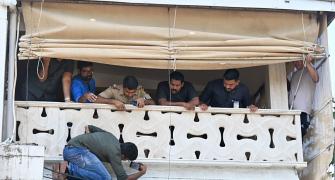India has said the stalled agreement for four more Russian nuclear reactors in Koodankulam in Tamil Nadu was not a setback.
It said it did not want to go about the pact in bits and pieces. New Delhi said it wanted to first get an across the board India-specific IAEA safeguards for all its nuclear plants and the Nuclear Suppliers Group to amend guidelines to facilitate resumption of nuclear trade failing which any nuke deal with Russia will remain just a piece of paper.
The Indo-Russian nuclear deal was planned to have been signed during Prime Minister Manmohan Singh's official visit to Moscow on Monday but did not materialise due to last-minute hitches.
India also said that it was not going to violate laws nor it would expect other countries to break rules to facilitate resumption of international nuclear trade with it.
Official sources said there was no point in rushing through an agreement if it is not possible to implement the pact. Also, the internal political processes in India to resolve the deadlock over the Indo-US nuke deal have to be completed if the Koodankulam pact has to take shape, they added.
Sources acknowledged difficulties faced by India in doing nuclear trade with Russia or any other country without a IAEA safeguards agreement and a change in NSG guidelines. These two steps are necessary for operationalising the Indo-US nuclear deal, which is currently stuck in a political logjam.
They said India did not expect Russia to bypass the NSG guidelines. Sources made it clear that the initial Memorandum of Intent signed during Russian President Vladimir Putin's visit to India in January was not frozen.







